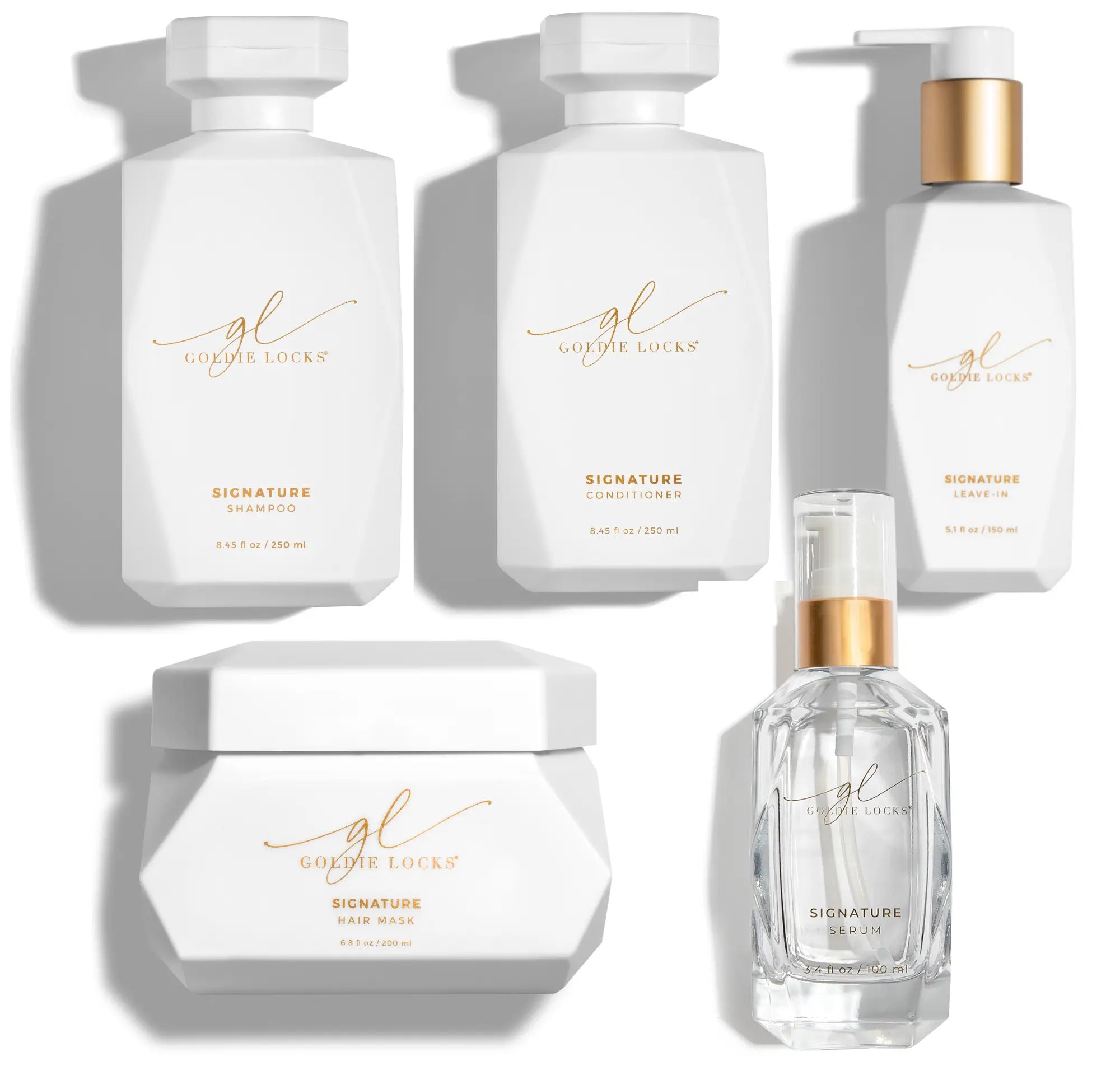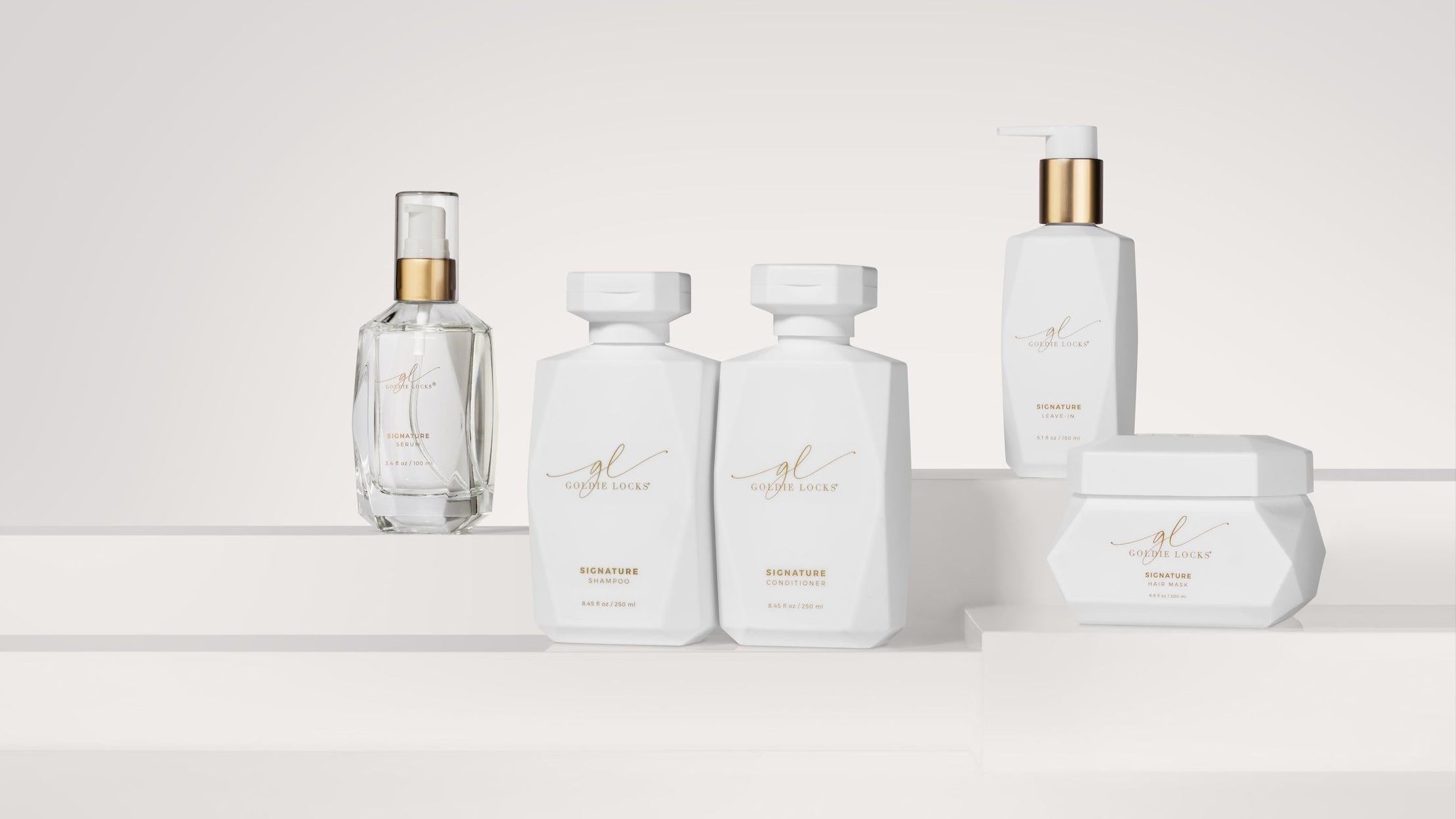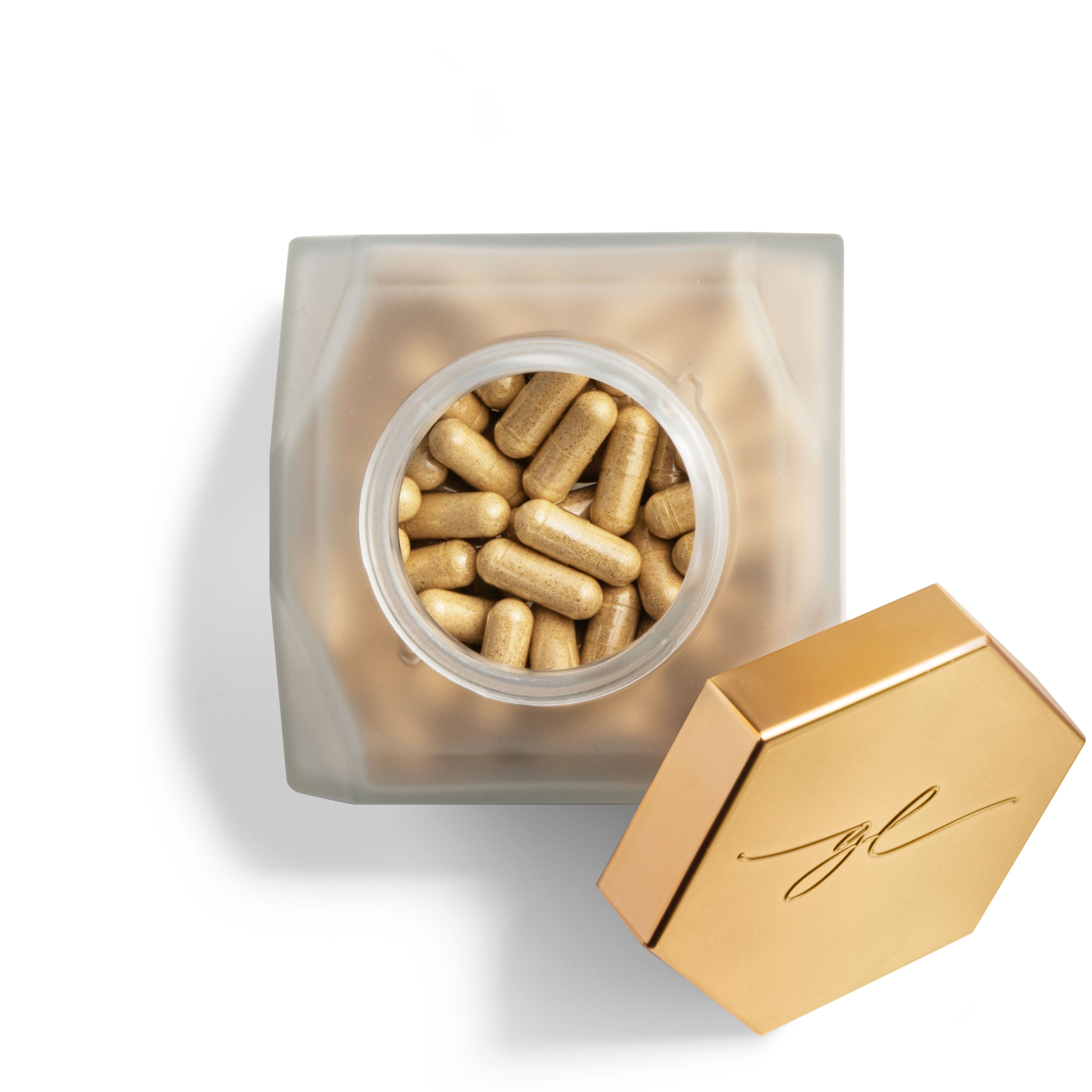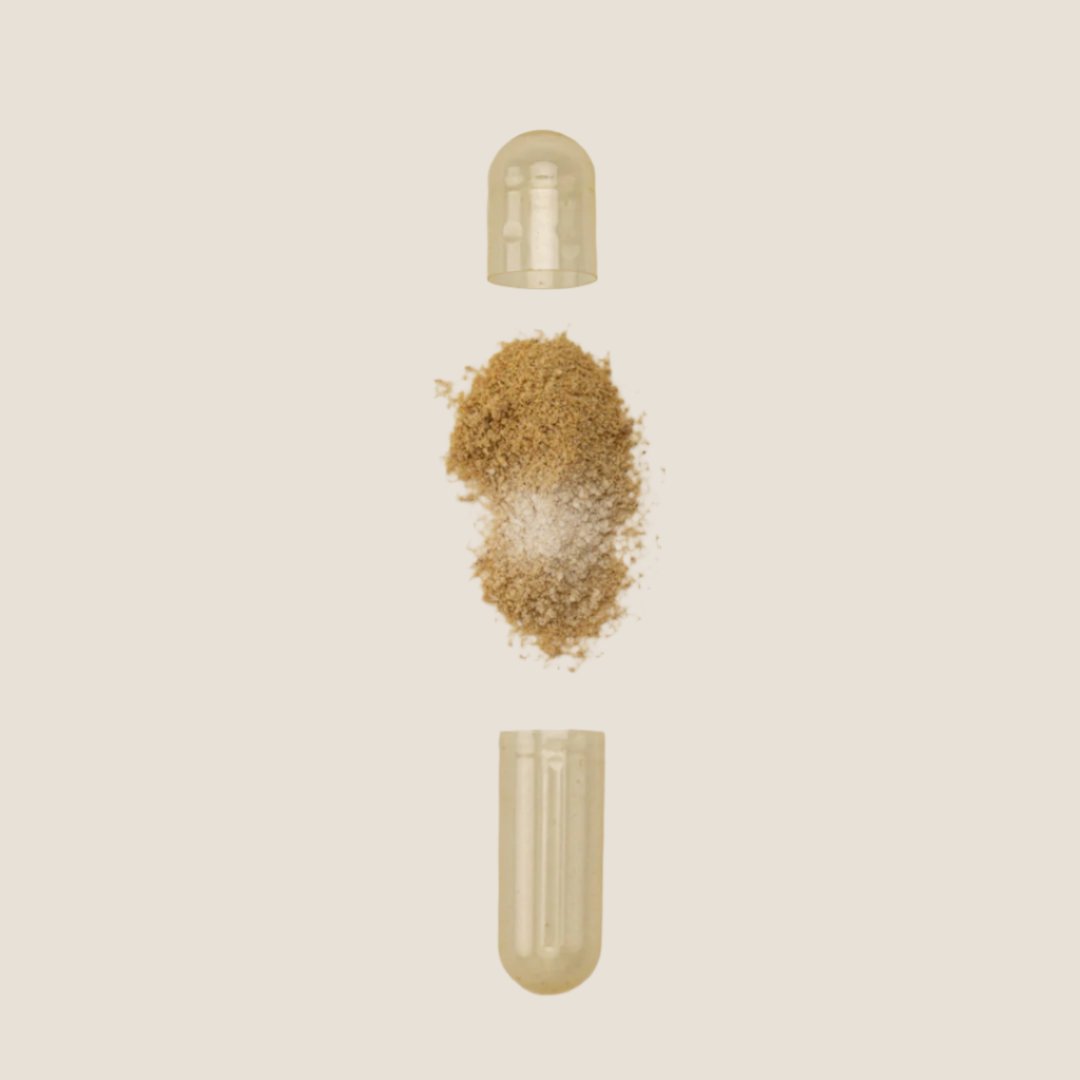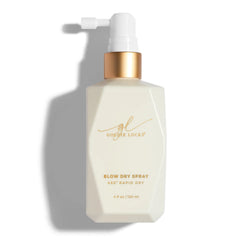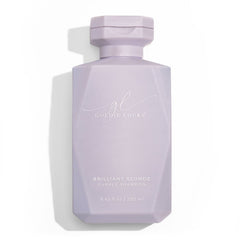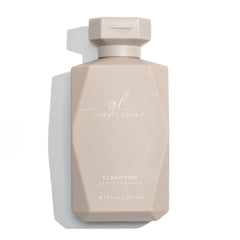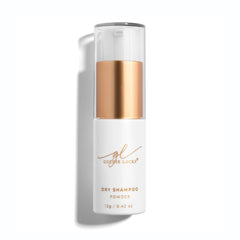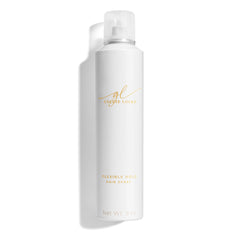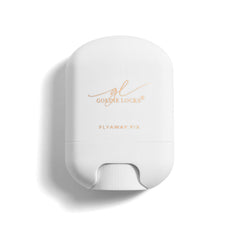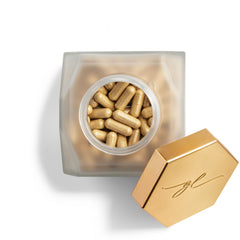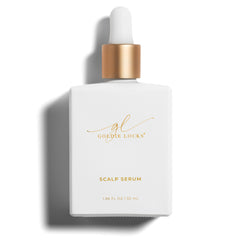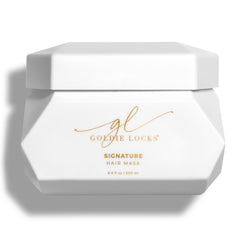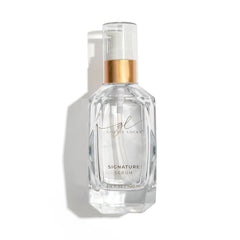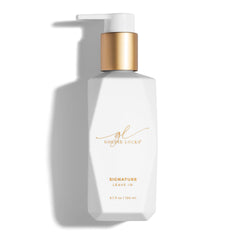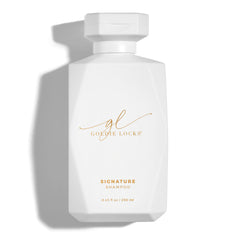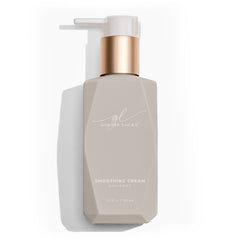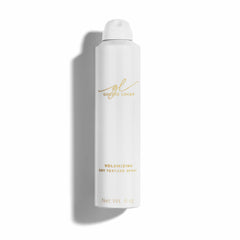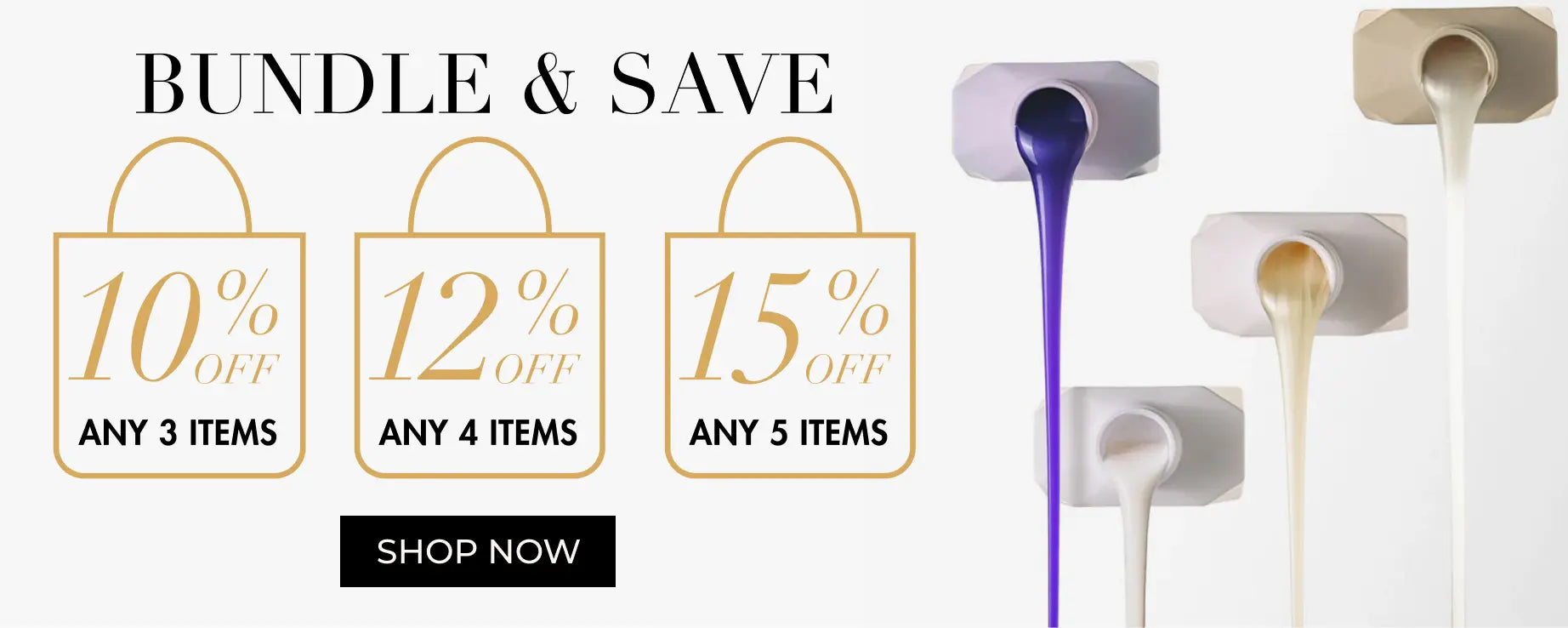Blonde hair holds a unique, luminous beauty. But over time, many people notice it beginning to darken. This change can feel unsettling, raising questions about whether it’s permanent and what’s truly behind it.
In this post, we’ll explore the science of why blonde hair shifts in color, distinguishing between lasting change and temporary darkening. You’ll also find thoughtful, manageable tips to help care for your hair and preserve its natural brightness with confidence and ease.
Index
What Causes Blonde Hair to Turn Brown?

Blonde hair often begins to darken gradually, and for many, this shift can feel unexpected or even frustrating. The truth is, hair color change is a natural process influenced by both intrinsic (internal) and extrinsic (external) factors.
INTRINSIC (YOU CAN'T FULLY CONTROL):

Our genes are the primary blueprint for your natural hair color. As you grow older, shifts in genetic expression can influence how much melanin (your hair’s natural pigment) is produced.
There are two key types of melanin:
- Eumelanin, which creates brown to black tones
- Pheomelanin, responsible for yellow to red hues
Blonde hair typically contains less eumelanin, which is why even small increases in pigment can make it appear noticeably darker.

As we age, the melanocytes, cells responsible for producing melanin, may become more active. In childhood, low melanin output often results in light blonde hair. Over time, increased melanin production can shift your hair color toward darker shades, such as light brown.

HORMONAL CHANGES:
Hormonal fluctuations, particularly during puberty, pregnancy, and menopause, can also affect melanin levels. When certain hormone levels rise, they may stimulate increased melanin production, gradually shifting blonde tones toward warmer, deeper hues.
EXTRINSIC (YOU CAN CONTROL):

SUN EXPOSURE:
UV rays from the sun can initially lighten blonde hair by breaking down melanin. However, prolonged exposure may trigger the body’s protective response, increasing melanin production, which can ultimately lead to darker, more muted tones.

WATER QUALITY:
Hard water, which contains high levels of calcium and magnesium, can leave mineral buildup on the hair. Over time, this residue can dull color and give blonde hair a darker or brassy appearance, especially if copper or iron is present in your water source.

PRODUCT & SEBUM BUILDUP:
Residue from shampoos, conditioners, styling products, and natural oils can accumulate on the hair shaft, weighing it down and making it appear darker. This effect is especially visible in lighter hair tones, where even subtle buildup can cloud brightness.

HEAT EXPOSURE:
Frequent use of high-heat styling tools raises hair porosity, making it more vulnerable to absorbing pollutants and metals. This damage can alter hair’s texture and color, leading to a duller or darker look over time.

NUTRITION:
Your diet plays a key role in maintaining healthy hair. Deficiencies in vitamins and minerals, particularly Vitamins B, D, and E, zinc, and iron, can affect melanin production and overall hair vitality. A well-balanced diet supports both color and shine.

LIFESTYLE HABITS:
Smoking is known to accelerate aging throughout the body, including the hair. It can contribute to color changes and dullness over time.
Note: While stress is often blamed for hair color changes, science links it more directly to premature graying, not to blonde hair turning brown.

HAIR CARE PRACTICES:
Frequent coloring, chemical treatments, or the use of harsh shampoos can disrupt your hair’s natural balance. These processes may strip pigments and damage the cuticle, making blonde hair appear darker or more uneven as it grows out.
How to Prevent & Reverse Unwanted Darkening

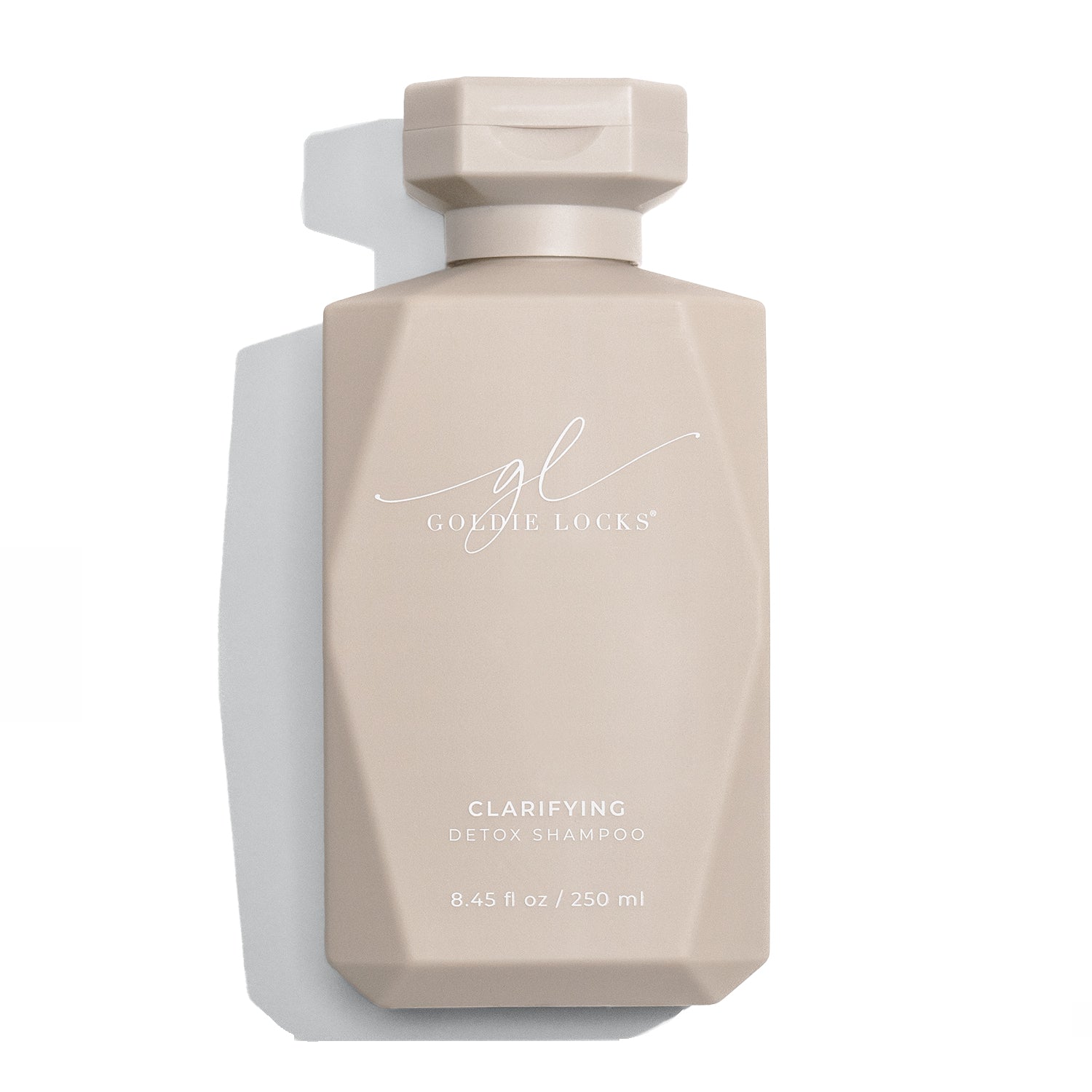
Reset: Once a month, give your hair a fresh start. A clarifying cleanse helps remove product buildup, excess oils, and mineral deposits that weigh down blonde tones. Use Goldie Locks® Clarifying Shampoo to gently yet effectively lift away residue and reveal your hair’s natural brightness.

Protect: Daily exposure to UV rays can lead to dullness and unwanted darkening. Protect your hair by wearing a hat or using UV-filtering hair products to help preserve its light, radiant tone.
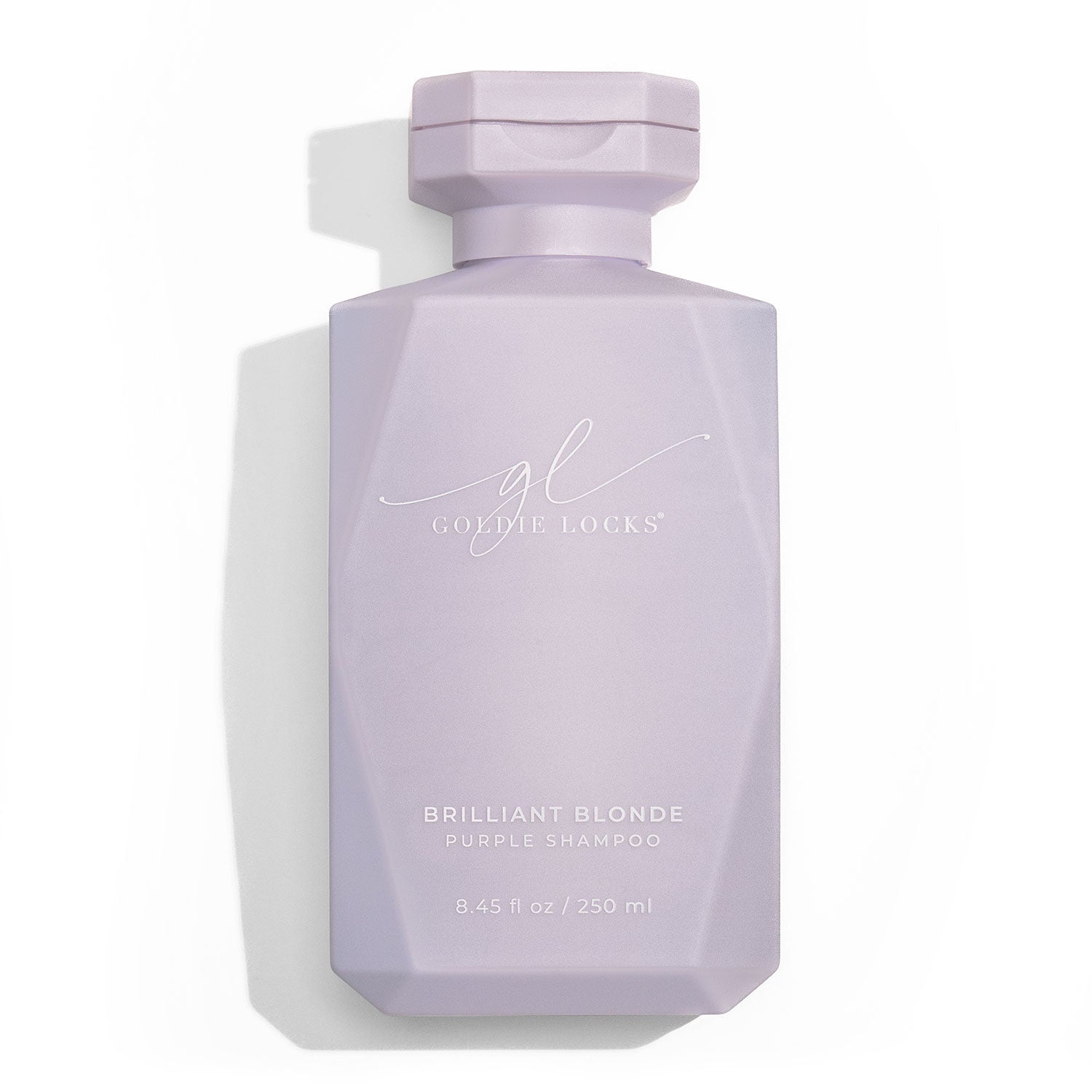
Maintain Tone: For weekly tone care, reach for Goldie Locks® Brilliant Blonde Purple Shampoo. This rich, luxurious formula gently cleanses while depositing just the right amount of violet pigment to neutralize brassiness, without over-drying or dulling your blonde.
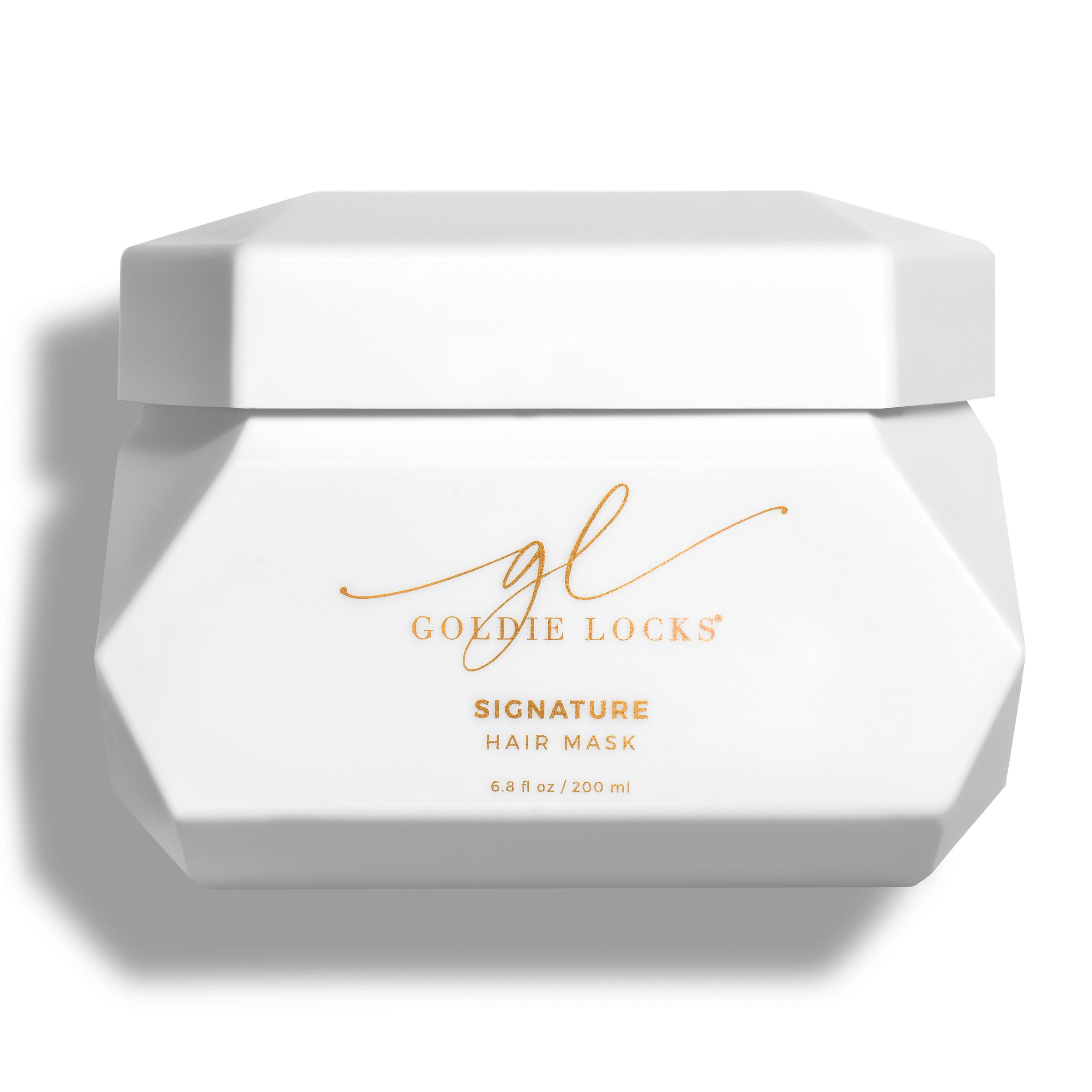
Nourish: Hydration is key to vibrant, light-reflective hair. Treat your strands to a weekly dose of Goldie Locks® Signature Hair Mask to restore moisture, softness, and strength. Follow with Goldie Locks® Signature Hair Serum to seal in shine and enhance natural luminosity.
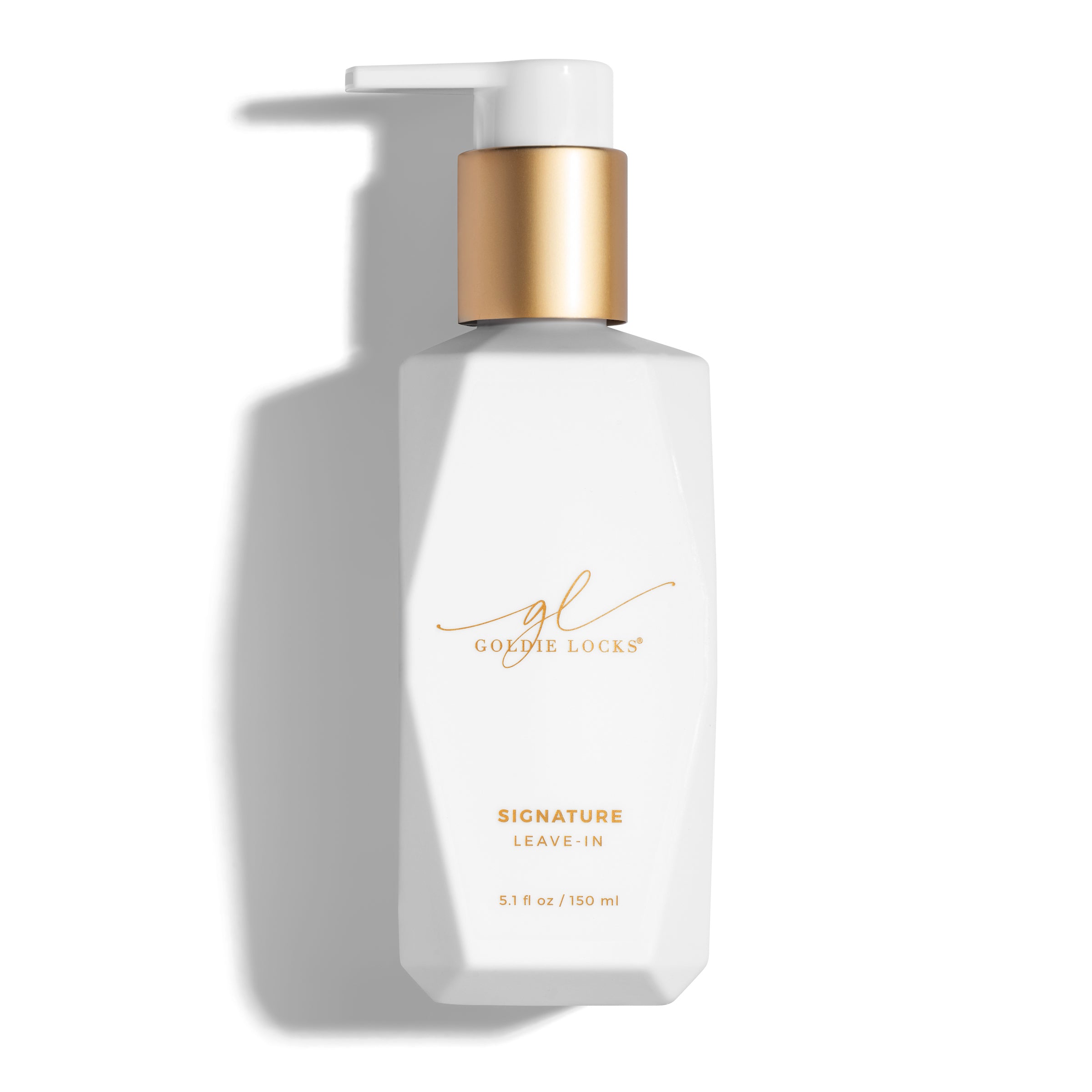
Water & Swim Care: Hard water and pool chemicals can disrupt your tone. Use a shower filter and pre-wet hair before swimming. Apply Goldie Locks® Signature Leave-In Conditioner, as a barrier, then follow up with a clarifying treatment and hair mask post-swim to remove buildup and restore hydration.
FAQs
Can blonde hair stay blonde?
While you can’t change your genetics, you can influence how your hair looks. With consistent protection and mindful care, blonde hair can stay bright, luminous, and vibrant for much longer.
Can stress turn blonde hair brown?
There’s no strong evidence to support this. Stress is more commonly associated with premature graying, not with blonde hair darkening.
How to fix oxidized blonde hair?
Start with a deep reset using Goldie Locks® Clarifying Shampoo to remove buildup and mineral deposits. Follow with Goldie Locks® Signature Hair Mask, to rehydrate and repair, then tone with Goldie Locks® Brilliant Blonde Purple Shampoo to restore brightness. Finish with UV and heat protection, and stay consistent with metal buildup prevention.
Final Thoughts
Blonde hair naturally deepens over time, influenced by a blend of genetics, environmental exposure, hormonal changes, and lifestyle habits. Understanding these factors empowers you to care for your hair more intentionally, and preserve the color you love.
With thoughtful maintenance and the support of Goldie Locks® Brilliant Blonde Purple Shampoo you can keep your blonde looking brighter, longer.


